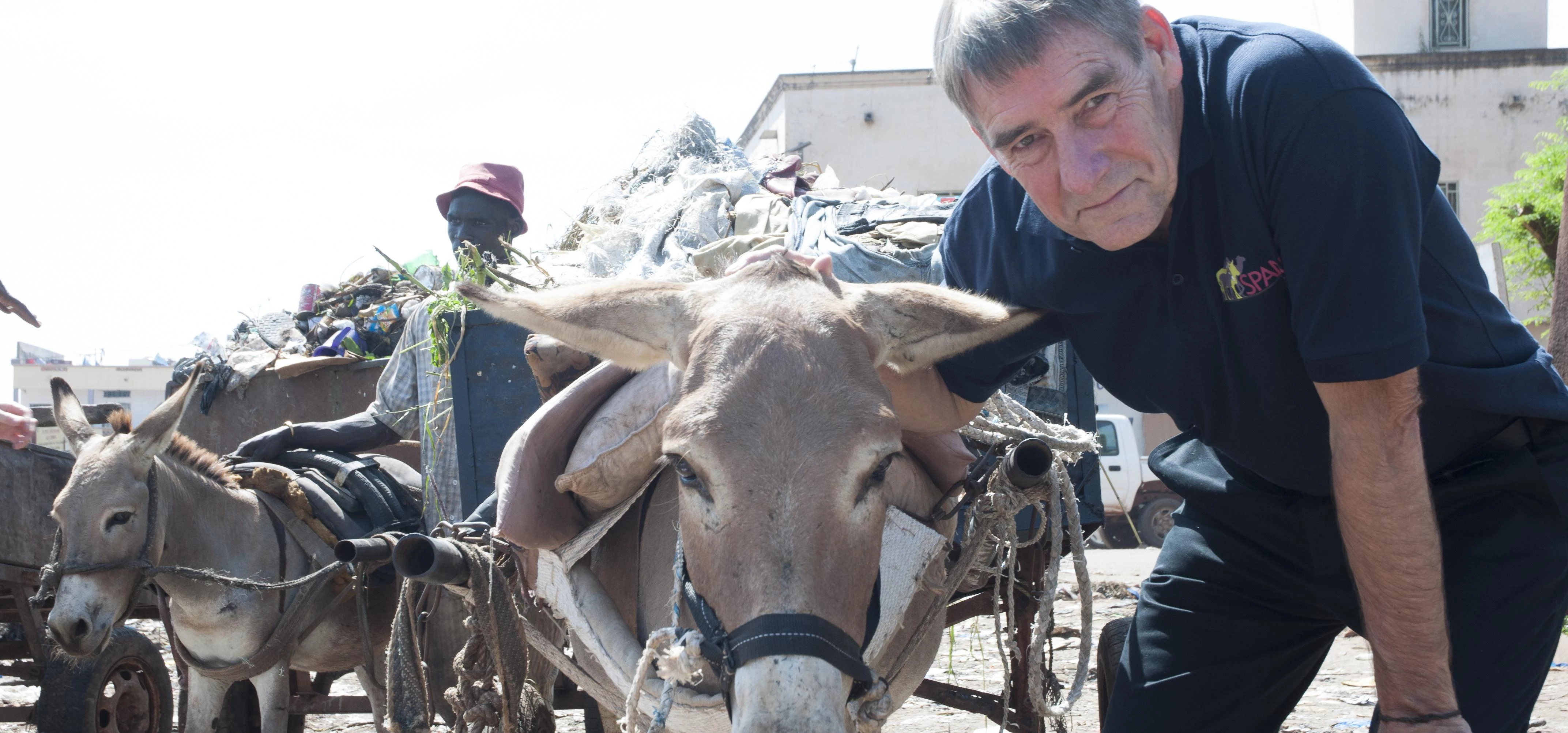
Partner Article
One billion people dependent on this hidden workforce
What are we doing to support the 100 million donkeys, horses and mules working hard every day to feed the world’s poorest communities?
Did you know that one working animal can support the livelihood of an extended family of up to 30 people? One billion people worldwide are dependent on this hidden workforce of animals for their livelihoods yet few in the developed world are aware of this extraordinary reliance of so many of the world’s poorest communities.
Former CEO of Royal National Children’s Foundation, Geoffrey Dennis, has taken up a new role as the Chief Executive of international charity SPANA and is now calling on the international community to reduce the plight of nearly 200 million donkeys, horses and mules working hard every day across Africa and beyond, emphasising that they are vital to the economic wellbeing of the world’s poorest communities.
Horses, donkeys, camels and elephants are doing the job of trucks, tractors and taxis in many of the world’s communities and have been shown to improve the status of women in society and support the education of children. Without these animals, the lives of women would be radically different since they are tasked to solely transport all the food, water and goods.
“International aid needs ‘complete overhaul’,” says Dennis reflecting on his extensive experience in the charity sector, international development and disaster and emergency response having worked in global humanitarian organisations, like Care International UK, the British Red Cross and the International Federation of the Red Cross in North Korea.
Another short term “cause and effect” problem was further highlighted yesterday with the discussion of rising number of donkeys being exported to China for their skin’s gelatine use in traditional medicines. The price of a donkey in many parts of Africa has gone up by as much as 450% and while it may seem lucrative in the short term to sell their family donkey for this high price, when that money runs out they’re left without a sustainable revenue generating asset. This is why the government has now banned it, Dennis says.
Since the families most reliant on animals for their livelihoods are often the most marginalised and vulnerable with few reserves in times of crisis, animal deaths in times of natural disasters, extreme weather and conflicts, become the precursor to famine and humanitarian tragedy if essential veterinary care is missing.
spana.org
This was posted in Bdaily's Members' News section by Broadcast Exchange .








 Raising the bar to boost North East growth
Raising the bar to boost North East growth
 Navigating the messy middle of business growth
Navigating the messy middle of business growth
 We must make it easier to hire young people
We must make it easier to hire young people
 Why community-based care is key to NHS' future
Why community-based care is key to NHS' future
 Culture, confidence and creativity in the North East
Culture, confidence and creativity in the North East
 Putting in the groundwork to boost skills
Putting in the groundwork to boost skills
 £100,000 milestone drives forward STEM work
£100,000 milestone drives forward STEM work
 Restoring confidence for the economic road ahead
Restoring confidence for the economic road ahead
 Ready to scale? Buy-and-build offers opportunity
Ready to scale? Buy-and-build offers opportunity
 When will our regional economy grow?
When will our regional economy grow?
 Creating a thriving North East construction sector
Creating a thriving North East construction sector
 Why investors are still backing the North East
Why investors are still backing the North East